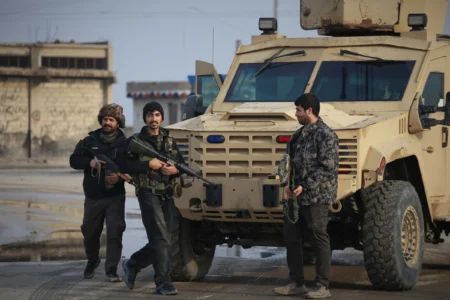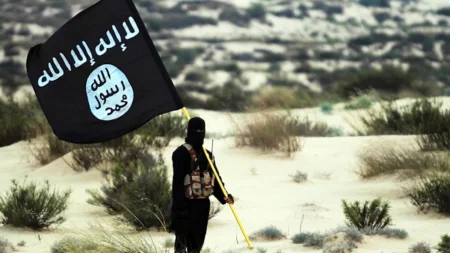Indian Prime Minister Narendra Modi has issued a stern warning to Pakistan over nuclear threats, stating that India will not tolerate any form of “nuclear blackmail.” This statement came after a ceasefire was announced between India and Pakistan, following a period of intense conflict.
On Monday night, during a 22-minute address to the nation, Modi addressed the ongoing tensions between the two neighboring countries. He emphasized that India’s stance on terrorism and dialogue remains unchanged. He firmly stated, “Terrorism and talks cannot go hand in hand, terrorism and trade cannot go hand in hand, blood and water cannot flow together.” Modi stressed that while it is not an era of war, it is also not the time for terrorism to continue.
The Prime Minister made it clear that India is closely monitoring Pakistan’s actions. Regarding the issue of Kashmir, Modi said no discussions would take place unless Pakistan is willing to address the destruction of terrorism infrastructure and the return of Pakistan-occupied Kashmir (PoK) to India. These conditions, he stated, are non-negotiable for India.
Modi did not hold back in accusing Pakistan’s government and military of supporting terrorism. He warned that this behavior could eventually lead to Pakistan’s own downfall, adding that terrorism will ultimately destroy those who foster it.
The remarks came after heightened tensions between India and Pakistan in recent weeks. On April 22, India launched “Operation Sindoor” in response to a terror attack in Pahalgam, Jammu and Kashmir, which it accused Pakistan of supporting. Pakistan retaliated with a counterattack, leading to a fierce four-day exchange of fire. On May 10, following intense diplomatic efforts, U.S. President Donald Trump brokered a ceasefire agreement between the two nations.
In his speech, Modi also reassured the Indian public that the country’s security forces are always ready and vigilant. He highlighted the importance of maintaining peace, but also warned that India would not tolerate any threat to its sovereignty. His message was clear: any attempt to engage in nuclear blackmail would be met with firm resistance.
This tension is part of the ongoing conflict between the two countries over Kashmir, a region that has been a contentious issue since the partition of British India in 1947. Despite multiple wars and numerous skirmishes, both nations continue to claim the region in its entirety. Kashmir has remained a flashpoint for violence and instability, and the situation is exacerbated by the involvement of militant groups operating in the region.
The ceasefire announced on May 10 has temporarily halted military actions, but the underlying issues remain unresolved. While both nations have agreed to de-escalate the situation, Modi’s speech makes it clear that any progress in talks will depend on Pakistan’s willingness to curb terrorism and address India’s security concerns.
India’s decision to pause Operation Sindoor reflects a shift in strategy, but it remains conditional on Pakistan’s behavior moving forward. Modi’s warning serves as a reminder that India is prepared to take strong actions if provoked, particularly when it comes to the threat of nuclear escalation.
The ceasefire has been welcomed by the international community, but many experts caution that it is only a temporary respite. The underlying tensions between the two nuclear-armed nations are unlikely to disappear soon. As Modi pointed out, the issue of Kashmir remains a major obstacle to long-term peace in the region.
In conclusion, Prime Minister Modi’s speech serves as a reminder that while India is committed to peace, it will not back down in the face of threats, particularly nuclear ones. The situation remains delicate, and the future of relations between India and Pakistan will depend on how both nations handle the challenges ahead.







